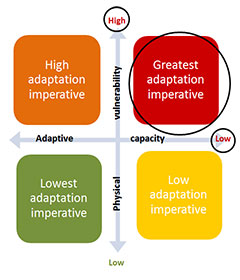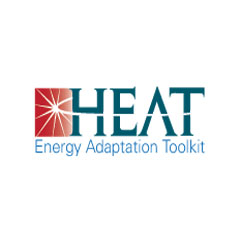The energy sectors of developing countries may be sensitive to the effects of climate change, such as reduced rainfall, sea level rise, and increased frequency and/or severity of natural disasters.
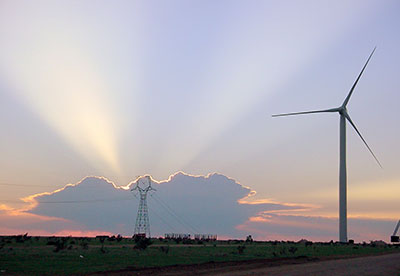
ESMAP’s work on adaptation seeks to develop and test processes to mainstream climate risk management into energy sector planning and operations and to support awareness raising and knowledge transfer.
1 | Climate Impacts on Energy Efficiency: Key Issues for Energy Sector Adaptation
Climate Impacts on the Energy Sector | Key Messages for Energy Sector Adaptation
This report presents an overview of how the energy sector might be impacted by climate change and what options exist for their management. It focuses on energy sector adaptation, rather than mitigation that has been a key focus of the energy sector and is not discussed in this report. The report draws on available scientific and peer reviewed literature in the public domain and takes the perspective of the developing world to the extent possible.
White Paper Report Launch | Book Launch | Executive Summary | Download Book
| 2 | Country Assessments: Climate Change Vulnerability in the Energy Sector | |
|
Climate Vulnerability Assessments: An Assessment of Climate Change Vulnerability, Risk, and Adaptation in Albania’s Energy Sector.
Read Briefing: English | Albanian
Watch the Video: Helping Albania's Energy Sector Respond to Climate Change
English | short version (<3.5 mins) |
In-Depth Assessments
|

3 | Energy Utilities and Climate Adaptation in the Energy Sector
ESMAP takes stock of initiatives from electricity regulators and utilities aimed at assessing and managing the risks of a changing climate, and extracts lessons for developing countries.
The results are summarized in the paper Climate Risk Management Approaches in the Electricity Sector: Lessons for Developing Countries from Early Adapters (Pierre Audinet, Jean-Christophe, Amado and Ben Rabb, eds.) under the just released book: Weather Matters for Energy (Alberto Troccoli, Laurent Dubus and Sue Ellen Haput, eds.) and published by Springer, New York, 2014), which was presented at the International Conference on Meteorology and Energy 2011, Queensland, Australia, 8-11 November 2011.
Presentation | Meeting Summaries | Promoting New Links Between Energy and Meteorology

4 | Economics of Adaptation to Climate Change in the Energy Sector
Economics of Adaptation of Climate Change
The report provides information on lessons learned and insights gained on adaptation to climate change from global, country, and sector-level analyses, the hope is to help policymakers worldwide prioritize actions, along with developing a robust, integrated approach for greater resilience to climate risks. The Report begins with the concepts and methodology used for analyses in both the global and the country case studies, including a discussion of study limitations. This is followed by a synthesis of key results from the global and country tracks and a conclusion with lessons learned.
|
5 | Tools and Resources
|
|
Rapid Assessment Tool for Energy and Climate Adaptation The rapid assessment tool provides a high-level, systematic analysis of the vulnerability of energy sector to climate change and adaptive capacity as well as high-level adaptation options. Such assessment can help engage energy stakeholders and identify priority areas for further interventions which experience relatively significant physical impacts of and weak adaptive capacity to climate change. A web version of the tool is under development and will be accessible via login here. For more information, contact Elisa Portale. |
|
Hands-on Energy Adaptation Toolkit (HEAT) Hands-on Energy Adaptation Toolkit (HEAT) is designed to help countries carry out a stakeholder based semi-quantified risk assessment of climate vulnerabilities and adaptation options for the entire energy supply-use chain. The tool can help raise awareness among key stakeholders—in government, the private sector, academia and civil society—of climate change risks and initiate dialogue on energy sector adaptation. |
|
Related Links |
|
Useful References
-
World Water Council | Climate adaptation: Aligning Water and Energy Development perspectives.
-
Clean Energy Ministerial: multilateral initiative in support of clean energy.
-
Clean Energy Solutions Center: clearinghouse for policy best practices, data, reports and analysis tools, plus an "ask the expert" facility.
-
REEGLE: database of country profiles, data, reports and stakeholders focused on clean energy development.
-
Sustainable Energy for All: UN-convened global partnership in support of universal access, renewable energy and improved energy efficiency.
-
World Bank: comprehensive information on the World Bank's energy portfolio.
Renewable Energy > Energy and Climate Adaptation
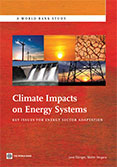
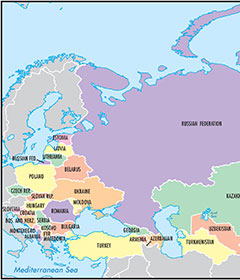 ESMAP supported work to help the Government of Albania and energy sector stakeholders develop policies and projects that are robust in the face of climate uncertainties, and assist them in managing existing energy concerns as the climate changes. Download Report.
ESMAP supported work to help the Government of Albania and energy sector stakeholders develop policies and projects that are robust in the face of climate uncertainties, and assist them in managing existing energy concerns as the climate changes. Download Report.